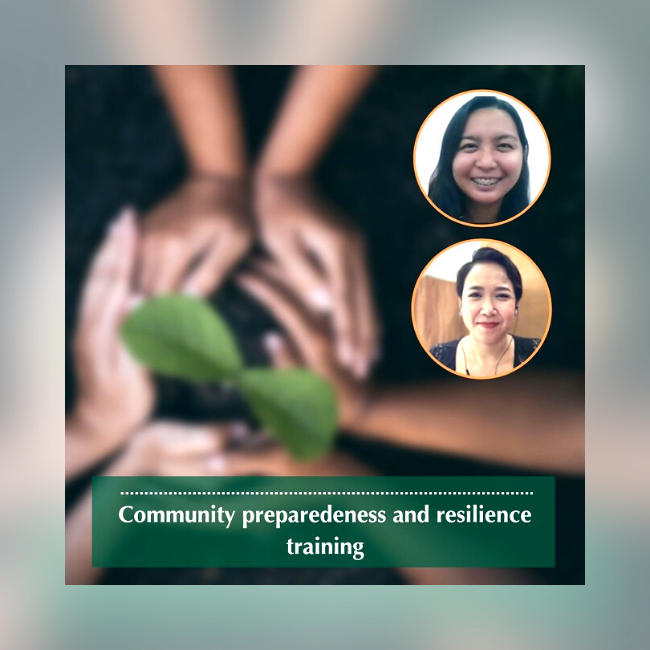The Philippines has seen an increase in intensity and frequency of typhoons over the last decade. Prolonged wet and dry seasons have also been experienced in the country, making agriculture a vulnerable sector.
The online training conducted by the Community Innovations Studies Center (CISC), UPLB College of Public Affairs and Development focused on “Community Preparedness and Resilience to the Challenges of Climate Change.” Held from Apr 25 to 29, the training recognized the need to enhance the capacities of agriculture practitioners as they work directly with local communities, particularly farmers and fishers.
Fourteen training participants from various attached agencies and field offices of the Department of Agriculture (DA) attended the 5-day training. They were technical staff from the Bureau of Agricultural Research, Bureau of Fisheries and Aquatic Resources, National Fisheries Research and Development Institute, Climate Resilient Agriculture Office, and DA Regional Field Offices of MIMAROPA and the Cordillera Administrative Region.
The said training covered three modules: 1) Awareness Raising on Climate Change; 2) Climate Change Mitigation, Adaptation, and Resilience; and 3) Participatory Community Resiliency Action Planning. The first two were delivered through lectures, while the last module was done through a workshop.
“It is important to start with laying down the foundation on the basic concepts, so all participants understand what climate change is,” Samantha Geraldine G. De los Santos, one of the training facilitators, said. In her lecture, De los Santos also shared the latest reports on climate change.
Meanwhile, the action planning workshop was conducted to help the participants identify and analyze the problems of fishing and farming communities and identify possible interventions. They also listed down activities to monitor and evaluate the interventions identified.
Aside from recognizing the value of an action plan, the participants also highlighted the importance of collaboration among local and national government institutions.
“Community participation and mobilization are very essential in building resilient communities to face the challenges of climate change,” one participant also noted.
The participation of regional and national institutions in the training acknowledged the shared responsibility of communities and the government to mitigate the risks of and adapt to climate change. The training is part of the research project of the UPLB Office of the Vice Chancellor for Research and Extension titled “Revitalizing the Technical Capabilities of the Department of Agriculture in Support towards Transformative Programs for Agriculture and Fisheries.”







